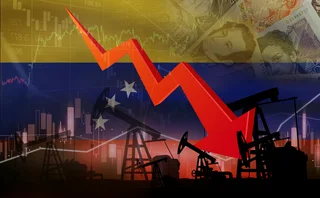Energy trade surveillance solutions 2023: market and vendor landscape

Global energy markets have increased in significance due to a combination of factors that include the Covid-19 pandemic and recent geopolitical events. Distinctive challenges are posed that stem mainly from factors such as the complexity of the market, large volumes of data, cross-market trading and international dynamics. The heterogeneity of energy markets further complicates surveillance efforts, as there is no single ‘energy market’, but rather a network of interconnected and specialised ones. These challenges are amplified by the multi-faceted nature of energy commodities (electricity, natural gas and oil) and the intricacy of some financial instruments.
The market for energy trading surveillance solutions, though small, is expanding as specialist vendors emerge, catering to diverse geographies and market specifics. These vendors, which originate from various sectors, contribute further to the market’s complexity, offering tailored solutions for the unique challenges posed by energy trading. Regional specialisation, regulatory nuances and the intricate nature of energy markets necessitate specialised surveillance tools. Crucially, as the industry navigates unprecedented volatility, the demand for sophisticated surveillance solutions is likely to fuel growth in this market.
Download the Chartis report Energy trade surveillance solutions 2023: market and vendor landscape
More on Risk management
Energy firms revisit CTRM systems as tech advances
Energy executives mull how to tap into the explosion of new technologies entering the risk space, but systems selection must consider future business needs, writes Yefreed Ditta at Value Creed
CRO interview: Brett Humphreys
Brett Humphreys is head of risk management at environmental markets specialist Karbone. He talks to Energy Risk about the challenges of modelling outcomes in unpredictable times and how he’s approaching the risks at the top of his risk register
How geopolitical risk turned into a systemic stress test
Conflict over resources is reshaping markets in a way that goes beyond occasional risk premia
Energy Risk Debates: the influence of risk culture
The panellists examine different risk cultures and discuss the risk manager’s role and influence in creating a risk culture
Energy Risk reaction: Venezuela and oil sanctions
Energy Risk talks to Rob McLeod at Hartree Partners about the energy risk implications of the US’s control of Venezuelan oil
CRO interview: Shawnie McBride
NRG’s chief risk officer Shawnie McBride discusses the challenges of increasingly interconnected risks, fostering a risk culture and her most useful working habits
Increasingly interconnected risks require unified risk management
Operational risk is on the rise according to a Moody's survey, making unified risk management vital, say Sapna Amlani and Stephen Golliker
Energy Risk Europe Leaders’ Network: geopolitical risk
Energy Risk’s European Leaders’ Network had its first meeting in November to discuss the risks posed to energy firms by recent geopolitical developments







